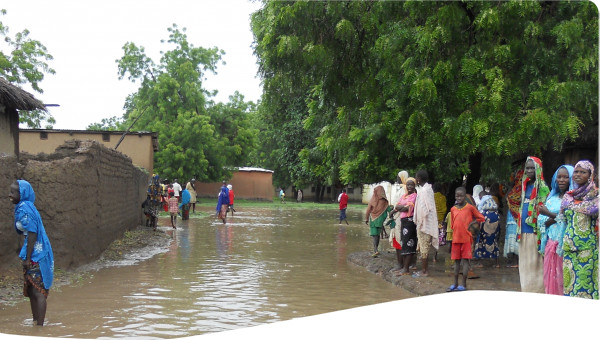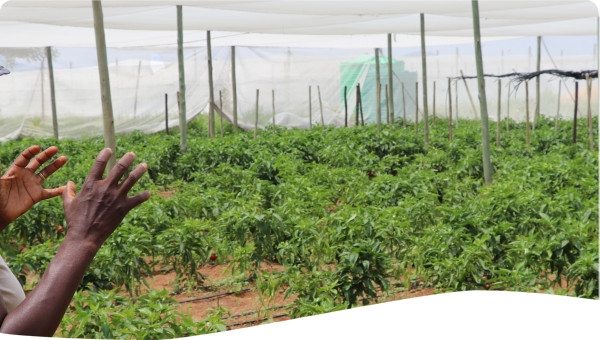Sri Lanka’s dry zone, covering 70% of the country, faces severe water scarcity and land degradation, threatening agriculture, ecosystems, and livelihoods. Women bear disproportionate burdens due to drought, particularly in agriculture and household water collection. The Climate Resilient Integrated Water Management Project (CRIWMP) was launched (2017–2024) to support smallholder farmers through climate-smart agriculture, water management, and economic empowerment. Women-led initiatives in sustainable land management (SLM) and drought resilience are key, addressing both environmental and socio-economic challenges.
Desertification and drought in Sri Lanka’s dry zone have intensified due to erratic rainfall, land degradation, and climate variability. This region, home to many smallholder farmers, that depend on irrigation and water cascade systems, which are highly vulnerable to climate change. Women are central to agriculture in the area but they face challenges such as limited access to land, financial services, and markets.
Women in rural farming communities experience economic instability due to unpredictable weather patterns, particularly droughts that disrupt harvests. Additionally, the burden of unpaid care work increases during droughts, limiting women’s opportunities for economic participation.
The CRIWMP project was implemented in three critical river basins (Malwathu, Mi, and Yan) and aims to improve resilience against climate variability and extreme weather events. These basins suffer from acute water shortages and increasing the risk of kidney disease due to unsafe drinking water. The project seeks to empower vulnerable farming communities, particularly women, through targeted interventions in climate-smart agriculture, sustainable land management, and economic resilience.
Women’s participation in SLM in Sri Lanka, particularly in Kurunegala, has been transformative in bringing change. Despite structural barriers, women lead efforts in water conservation, sustainable agriculture, and climate adaptation. They engage in agroecological farming, rainwater harvesting, and community-led irrigation systems to combat water scarcity. Additionally, the project promotes women’s representation in local governance structures highlighting their growing role in decision-making related to environmental sustainability.
The CRIWMP implements several initiatives to build climate resilience among smallholder farmers, with a focus on women.
Women-led conservation efforts were undertaken to establish small-scale reservoirs and rainwater harvesting systems, ensuring sustainable water use. This was paired with irrigation system improvements to enhance agricultural productivity despite erratic rainfall.
Women were trained in climate-smart agriculture techniques, including crop diversification, soil conservation, and agroecological farming as well as introduction of drought-resilient crop varieties such as Kochchi (hot chili pepper) to enhance productivity and income. Furthermore, natural pest management techniques reduces dependency on chemical inputs, promoting ecological sustainability.
The project provided women with financial services, microcredit schemes, and training to invest in sustainable farming which allowed local women entrepreneurs, to expand agricultural businesses, selling saplings and generating additional income. The project also fostered women’s self-help groups and cooperatives facilitate knowledge exchange and collective financial empowerment. By integrating these strategies, CRIWMP strengthens the resilience of farming communities in Sri Lanka’s dry zone, fostering gender equality and environmental sustainability.
The CRIWMP has generated significant socio-economic and environmental benefits, particularly for women-led farming communities in the dry zone. This includes improving water security through implementation on small scale reservoirs, rainwater harvesting systems, and climate smart agriculture. The interventions enhanced irrigation systems, bolstered irrigation systems and mitigated effects of drought on crop yields. This also improved food security and environmental sustainability.
The introduction of drought-resilient crops, such as Kochchi chili, has provided farmers with climate-adaptive livelihood opportunities. Furthermore, the soil conservation techniques and agroecological practices that were integrated with the climate smart agricultural practices have reduced reliance on synthetic fertilizers, fostering sustainable land use.
It was seen that women farmers have developed entrepreneurial ventures, expanding their market reach and increasing household incomes. By empowering women through the project women’s involvement in governance structures has increased, with 25% representation in local government decision-making and allowed women to take leadership in SLM and climate adaptation initiatives. The CRIWMP exemplifies the effectiveness of integrating gender-responsive strategies into climate adaptation programs, demonstrating how women’s leadership enhances improved land management, water security, and food security to combat droughts.
Providing capacity building should be paired with providing access to financial resources for sustainable farming. Schemes such as microcredit and targeted financial support are crucial in enabling women farmers to invest in climate-resilient agriculture. Future initiatives should integrate tailored financial solutions to expand women’s economic opportunities, including access to markets.
Strong technical capacity and strengthened financial security has allowed women to increase their engagement in decision making processes including those related to water management, climate adaptation, and drought resilience.


